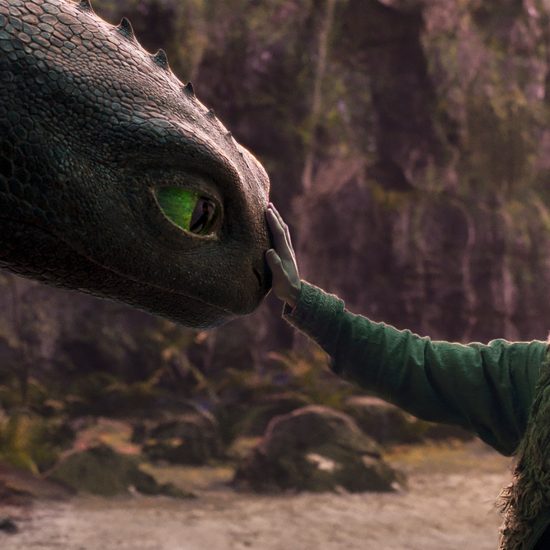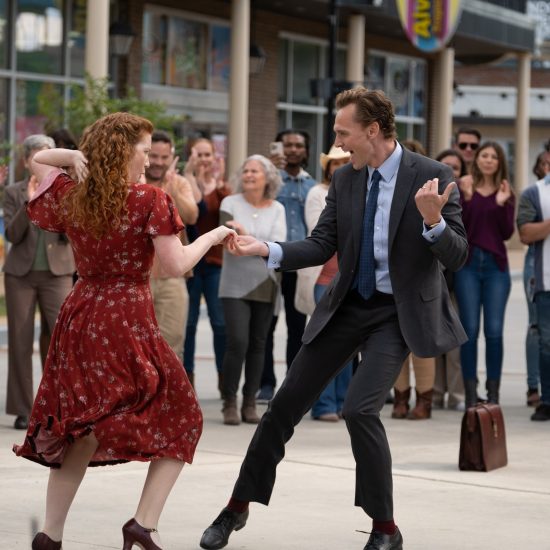
One of the most relatable scenes in Amazon Prime’s newest film, Don’t Make Me Go, involves a father, Max (John Cho) teaching his daughter, Wally (Mia Isaac) to merge onto a highway. After much angst, the daughter successfully merges, but with her eyes shut. Max, capturing that heady mix of parental fear and frustration, tells her “you can’t ever close your eyes” when driving. Max’s admonishment might as well stand in for the theme of the movie: when living your life, don’t close your eyes.

Juliet Vedral
Don’t Make Me Go is both a feel-good father/daughter road trip film and a poignant tale about the fragility and impermanence of life. At the beginning of the film, Max, a single dad, finds out that he has terminal cancer. He can either opt for a surgery with only a 20% chance of success, or he can forgo it, and die within the year. Because he wants to prepare Wally for his death, he declines the surgery. Instead, he takes Wally on a road trip, ostensibly to attend his college reunion, in the hopes that he can introduce his daughter to her estranged mother.
The surgery isn’t the only risky thing that Max has avoided as a parent. A talented singer and musician, Max put his musical aspirations aside when he became a single father. He also forwent serious relationships, favoring hookups with no strings attached. Max doesn’t even reveal his condition or the reason for the urgent road trip full of life lessons, until nearly the end of the film. Though he had the best intentions, it becomes clear that Max was the one closing his eyes on his life’s journey.
Max ends the film “coming to life in his own right,” screenwriter Vera Herbert told me. “And realizing what relationships matter, realizing he shouldn’t give up on his passion. It is a reawakening for him and a coming of age later in life story, for sure.”

Life can often be scary and a long one is not guaranteed. The temptation to close your eyes and avoid facing the possibility of hardship, suffering, or loss is very real. But by giving into it, we also miss out on the beauty, love, and redemption that this life has to offer. James, in his letter to the early church, writes “Why you do not even know what will happen tomorrow. What is your life? You are a mist that appears for a little while and then vanishes.” (James 4:14 NIV)
Our time here on earth is short and our journey here can often be treacherous. We need a Good Shepherd who knows the way, even through the darkest of places.
Max sets out to sacrifice the rest of his life because he wants to shepherd Wally through the “valley of the shadow of death” in the time he has left. He’s hoping he can make as many memories for Wally and teach her as much as he can before he dies. But Max is also underestimating Wally. In a powerful plot twist, we realize that on this trip, Wally has also been shepherding Max. She helps him to open his eyes to the life he’s been avoiding.
“All of us are going to experience tragedy in one way or another in our life,” Herbert shared. “And the only thing we can do to cope is just carry the love of the people that we have in our life with us.”
Herbert began writing Don’t Make Me Go as a 23-year-old in the years following her father’s unexpected passing. Her funny-but-poignant writing also shepherds viewers through the plot twist toward the end of the film. “I think the suddenness and immediacy of my dad’s death–there one moment and gone the next–made me feel that could happen to anyone,” she said. “And so even though these two characters have gone on this great journey together and they feel they’re in a good place and we’re very hopeful that he’s actually going to end up okay, there’s something coming out of left field that you can’t predict.”
For the Good Shepherd, there are no plot twists, nothing unpredictable coming from left field. The Good Shepherd can safely guide us, even through the places we don’t want to go, even when we want to close our eyes. In our church’s atrium, we sing “The Lord is My Shepherd” with the children who attend. The second verse goes, “he knows me and he loves me, I’ll walk with him always.”
The Good Shepherd is one who entered the joy and the suffering of this life, out of love for this world. The Good Shepherd walked through this life and tasted death, so we could have the hope of resurrection. That love carries us. We can never be separated from that love. It allows us to open our eyes and face whatever comes from left field, so we can freely sing, “He knows me and he loves me. I’ll walk with him always.”
Don’t Make Me Go will be available on Amazon Prime July 15.
Juliet Vedral is a writer, toddler-and-baby-wrangler, and amateur shoe collector. She is the co-founder and editor of The Wheelhouse Review. Her writing has also appeared in Sojourners and Radiant. A native New Yorker, Juliet currently resides in Alexandria, VA, which is still a weird thing for her to say.






